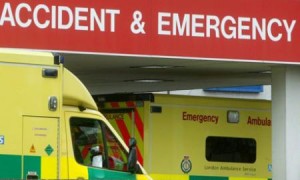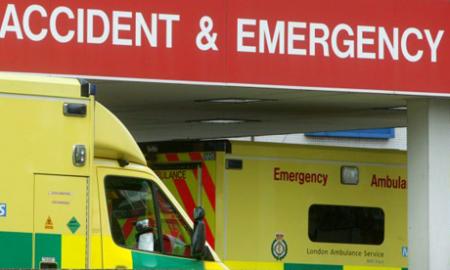The Western Health Trust is urging the public to think wisely before attending the Emergency Department at Altnagelvin Hospital for non-emergency reasons over the winter period.
The Trust is supporting a new regional campaign called “Choose Well” that is raising awareness of the range of health services available to treat everything from a common cold to a major emergency.
The appeal comes as figures show 30,000 “non-emergency” “999” calls were made to the Northern Ireland Ambulance service in the year up to 31 October last.
“Choose Well,” launched by Health Minister Edwin Poots, is aimed at helping people gain a better understanding of the choices available and allowing them to get access to the right services quickly, whether it is checking online, a trip to the pharmacy or an appointment with the GP.
Geraldine McKay, Director of Acute Hospitals at the Western Trust, said a visit to A&E should only be reserved for an emergency situation.
Mrs McKay said: “Traditionally hospitals are very busy places during the winter period. We are asking the public to consider the best way to get medical help to assess and quickly treat their illness/ailment.
“A visit to a hospital’s emergency department should only be reserved for an emergency situation. People visit the emergency department for minor ailments, when access to other more appropriate services becomes difficult or they believe they cannot wait for a GP appointment.
“I understand people are concerned for their health but to ensure our emergency staff have the capacity to deal with appropriate emergency cases over the winter period we are asking the public to think wisely before they visit us.
“Depending on the severity of the illness, patients may wish to speak to a local pharmacist or consult their local GP or GP Out of Hours services in the first instance. However, if you or a family member suspect what you are experiencing is of a more serious nature then do not hesitate to attend the hospital’s Emergency Department or call 999 if necessary.”
Some examples of how to use the health service appropriately are:
Self-Care – Minor illness and injuries, such as aches, pains, coughs, colds, upset stomachs and sore throats. All of which can be treated with over-the-counter medicines.
Pharmacists – Your pharmacist may be able to help you with: eye infections, stomach upsets, skin conditions, allergies, aches and pains, healthy eating and living, including giving up smoking. Blood pressure and diabetes monitoring, needle exchange, women’s health and children’s problems, such as nappy rash and teething.
GP – GPs provide a range of services including medical advice, physical examinations, diagnosis of symptoms, giving vaccinations, prescribing medication and carrying out simple operations and providing more longstanding or chronic condotopns.
GP Out Of Hours – GP out of hours is available if you require urgent medical care when your GP surgery is closed. GP out of hours services operate from 6pm each weekday evening until your GP surgery opens the next morning and 24 hours on Saturdays, Sundays and public holidays.
Minor injuries: Types of injuries treated can include: injuries to upper and lower limbs broken bones, sprains, bruises and wounds, bites – human, animal and insect, burns and scalds, abscesses and wound infections, minor head injuries, broken noses and nosebleeds.
Emergency Department/”999” – Emergency Departments provide the highest level of emergency care for patients, especially those with sudden and acute illness or severe trauma such as: a suspected heart attack, a suspected stroke, a serious head injury or if you are involved in a serious accident.







